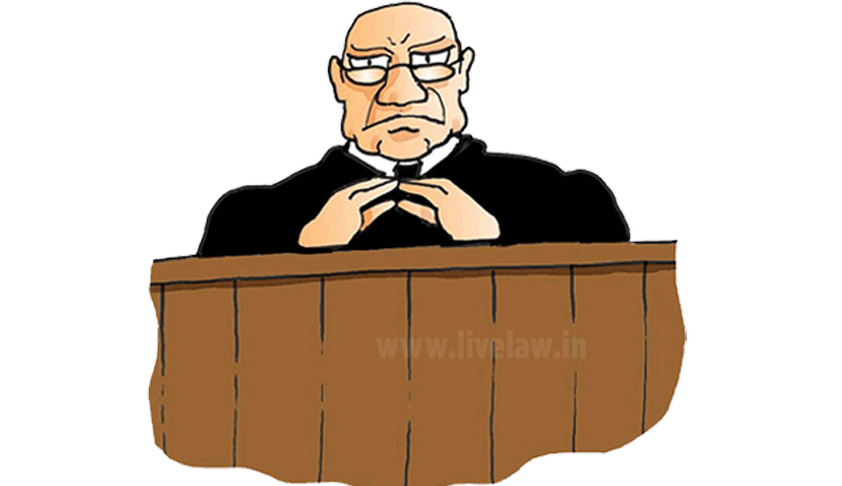Revamp the System of Judicial Appointments - A Demand Long Overdue
Prashant Padmanabhan
26 July 2014 2:54 PM IST

When our house is totally in disorder it is our duty to clean up the mess and make it livable.
When there is a clear incident pointed out by a retired Supreme Court Judge, Justice Markandey Katju who is known as an outspoken and honest Judge and his claims are supported by another Judge of great repute, Justice Ruma Pal, it is high time that we the members of Bar and all others who occupy the high offices discuss seriously the issue of Judicial Appointments. Members of the Bar have a general feeling that what Justice Katju cited might not be a rare or single incident. Many lawyers and general public have kept quiet in the absence of clear evidence and for fear of contempt. But now things are changing for the better.
Giving representation to different sections of people, including those who are under- represented is extremely important. Political leaders must ensure that all sections of people are adequately represented in the Judiciary at all levels, especially in a diverse country like India.
But then, if granting bail to a politician is the criteria for confirmation as a High Court Judge, it is a sorry state of affairs.
The incidents show poorly on the working of the “collegiums system”, the system of Judges appointing Judges, a “wonder in Indian democracy”, in the words of Somnath Chatterjee, the jurist and former Speaker of Lok Sabha. Justice Krishna Iyer also wondered, “who are in this collegiums, what is their criteria for appointment, is it religion? we don’t know, is it caste? we don’t know, is it blood relation to the Judges? we don’t know”. Justice Krishna Iyer was in favour of political say in judicial appointments because according to him, “power of Inquiry is with the Executive.”
But we know, many of our political leaders function for narrow short term motives. If the appointment is solely done by the Political Executive, may be with a consultation with Chief Justice to adhere to the Constitutional language but not adhering to its spirit, i.e., an appointment without giving any importance to the suggestions from the Chief Justice, we can imagine what will happen in India. Pressure groups may demand appointment of their ‘own’ people for extraneous reasons. That’s exactly what has happened in the incident pointed out by Justice Katju in this case. It is also not difficult for the Political Executive to manufacture an intelligence report, giving absurd reasons to reject a highly deserving candidate like what we have seen in the case of Gopal Subramanium. Thank God, people like Krishna Iyer and Shanti Bhushan, though old are still alive among us and they have criticized the Government for this.
The real reason, as pointed out by Subramanium is that he had done his duties as an amicus curiae in a fake encounter case involving a high profile political leader. That is the worse kind of interference from political Executive in the working of Judiciary, which is envisaged as an Institution Independent from the Executive in the Indian Constitution.
In US, there is a hearing before the Judicial Committee of the Senate before confirmation. There, the Senators ask questions on a wide range of subjects including Constitutional safeguards to citizens, possibility of Presidential interference in fair trial, gender discrimination, homosexuality, racism, right to abortion, religious rights etc. etc. and Senators participate. We can access and watch those hearings here.
India, is not a mature democracy like US and the level of education and understanding of most of our political leaders, is not comparable to those of the US.
Therefore, though we need to assess the political philosophy, social commitment, commitment to the Constitutional principles etc. of the candidate, it can’t be purely an appointment based on “political considerations” in the narrow meaning of the term as we understand in India.
Successive Chief Justices have been vociferous in asserting that collegium system is the best system for appointment of Judges. After reading the narrative of Justice Katju, we, members of the Bar, really doubt this.
We need urgent revamp of the system, a neutral and permanent appointment body comprising of full time members and which may include jurists, professors, sociologists, retired judges, mature political leaders with good understanding of the working of the legal system etc., which will assess the suitability of the candidate, based on sound criteria. There is a transparent system in place for appointment to the Supreme Court of United Kingdom.
I am sure, what Justice Krishna Iyer demanded for long is imperative in the near future. i.e., an Appointment Commission, a Performance Commission and a Punitive Commission. According to him, punishments short of Impeachment, are also required to keep the Judiciary clean. If Parliament is the sole authority to decide on the culpability of Judges, then Parliamentarians will have no other time except to discuss about the problems in the Judiciary. Constitution needs to be amended for this.
Hope, all of us, especially the members of the Bar will get up from slumber, rise to the occasion and demand accountability in Judiciary. Or else, we will not get impartial Judges with high integrity. Any compromise on the Institution which administers Justice is a peril for democracy.
Eternal vigilance is the price of liberty and let us be vigilant.
 Prashant Padmanabhan is a lawyer practising in the Supreme Court. He can be contacted at advocatepprasanth@gmail.com
Prashant Padmanabhan is a lawyer practising in the Supreme Court. He can be contacted at advocatepprasanth@gmail.com


